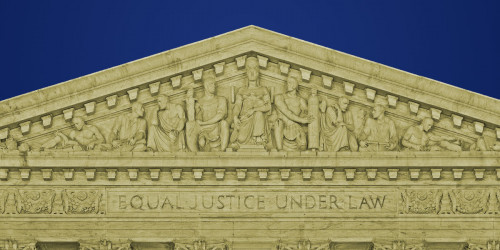When governments and companies assemble on an international level to discuss "Internet freedom," EFF's policy experts go on alert. All too frequently, government-level discussions about Internet freedom turn into opportunities to discuss tangential issues, many of which have negative implications on online freedom: laws and policies promoting censorship and surveillance on the Internet. With that in mind, EFF attended the Council of Europe (CoE) meeting on Internet Freedom: From Principles to Global Treaty Law? to ensure that European countries’ fundamental values--human rights, democracy and the rule of law--are upheld. EFF went in prepared to fight any attempt to promote pervasive spying proposals or government attempts to control the Internet. The Council of Europe largely succeeded in fostering a positive, rights-centered tone at the meeting. However, EFF remains concerned about the demonstrated support for a dangerous "cybercrime" initiative that invites online surveillance abuses.
Over 150 participants attended the meeting, including representatives from governments, companies and civil society. The Council of Europe’s expert group on cross-border Internet proposed a set of draft principles--ten ideas intended to guide countries' national and international Internet-related policies, norms, and rules. At the moment, the draft principles state that Internet governance arrangements must ensure the protection of user rights and freedoms in accordance with international human rights standards and the rule of law. Moreover, the draft states that the European Convention on Human Rights, one of the leading international legal instruments protecting human rights, “[applies] to the Internet and, more generally, to the information society as a whole in the same way as [it applies] to offline activities.” Notably, the expert group's decisive stand in favor of human rights principles did not inspire the kind of heated arguments that typically accompany the inclusion of human rights language in international policy documents in other venues. The draft included no references to abusive surveillance measures, and, overall, EFF is looking forward to hearing more discussion about how this set of principles will be applied in the real world.
Amidst the discussion of human rights and public interest Internet policy principles came an inspiring real-world example from Birgitta Jonsdottir, an Icelandic member of parliament who is fighting to transform Iceland into a free-speech haven. She is currently battling a US government attempt to collect her Twitter records as part of an investigation into Wikileaks. Flanked by US government representatives on her panel, Jonsdottir gave a stirring presentation on the Icelandic Modern Media Initiative (IMMI) and its promise to protect free expression for journalists and whistle-blowers from all over the world. IMMI is promoting an Icelandic law that will create a supportive jurisdiction for the publication of investigative journalism and other threatened online media. The Initiative is garnering increasing support: the European Parliament passed a resolution “to position [Iceland and the EU] strongly as regards to legal protection on freedom of expression and information,” a position that will surely bolster IMMI’s work.
The meeting did, however, play host to the kind of dangerous surveillance rhetoric we worry about when countries gather to discuss Internet freedom. Speaking to the conference via pre-recorded web video, the CoE Secretary General issued a troubling statement referring to the Convention on Cybercrime as “the only convention in the world to protect people on the Internet.” "Cybercrime" is a buzzword typically used in combination with plans to give law enforcement entities more power to surveil users online, a policy package that can also endanger citizen privacy in developing countries where weak judicial powers and low legal safeguards make it easy for democratically elected leaders to abuse online surveillance capabilities.
We were equally uncomfortable when the US government representative referenced Hillary Clinton’s February 2011 speech on "Net freedom"; a speech that, for all of its laudable commitment to a free and open Internet, regrettably endorsed the Budapest Cybercrime Convention’s overbroad surveillance powers and lack of legal safeguards and more broadly pledged to support efforts of other nations to bolster their "cybercrime" law enforcement capacity. The pitfalls in these initiatives to help others nations' law surveillance capabilities are only beginning to be made apparent; we have recently seen how the Paraguayan government sought US government assistance in spying on its political enemies.
The CoE is not yet looking at a global treaty and has made clear on its website that these principles can be formalized into a "soft law" framework of voluntary practices. Governments, businesses and civil society groups should reflect deeply about the CoE draft principles that might guide the development of national and international policy. In addition, policymakers and NGOs should compare all of the various proposals that are being hatched in other governmental and intergovernmental organizations to determine which have the most powerful and unequivocal language for protecting human rights. The Dynamic Coalition on Internet Rights and Principles at the United Nations Internet Governance Forum (IGF) could be a productive locus for this work; they are an open network of individuals and organizations that have shown a robust commitment to upholding human rights on the Internet and upholding the right to anonymity.
Safeguarding users’ rights is easier said than done, particularly when governments' complex demands are debated at an international scale. But EFF in Europe (working with fellow travelers, like EDRi) will continue to demand that governments protect Internet rights online and preserve an open and free Internet for all, and we will continue to keep the public informed on how this discussion evolves.










